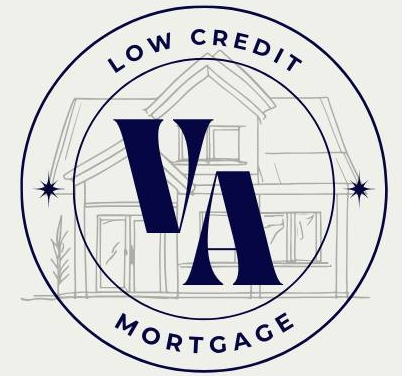How to Get a VA Mortgage with a Low Credit Score and Bankruptcy: A Complete Guide
For veterans and active-duty service members, a VA (Veterans Affairs) loan is one of the most valuable mortgage options available. The VA loan program offers benefits like no down payment, competitive interest rates, and no private mortgage insurance (PMI) requirement. However, the process of securing a VA loan may seem daunting, especially if you have a low credit score or a history of bankruptcy. Fortunately, it is still possible to qualify for a VA mortgage under these circumstances. This comprehensive guide will walk you through the steps of getting a VA mortgage with a low credit score and bankruptcy, ensuring that you understand your options and the path to homeownership.
Understanding VA Loans: An Overview
VA loans are designed to help veterans, active-duty military members, and certain members of the National Guard and Reserves purchase homes without needing to meet the strict requirements of conventional loans. The U.S. Department of Veterans Affairs guarantees these loans, which means that lenders are more willing to approve applicants with less-than-perfect credit histories.
Some of the key benefits of VA loans include:
•No down payment: One of the most significant benefits is the ability to purchase a home with zero down payment, a feature not commonly offered by conventional loans.
•No private mortgage insurance (PMI): Unlike conventional loans, VA loans do not require PMI, which saves homeowners hundreds of dollars each month.
•Lower interest rates: VA loans typically offer lower interest rates than conventional loans, which can help save you money over the life of the loan.
•Easier qualification: VA loans are more forgiving when it comes to credit scores and financial history, which is particularly beneficial for veterans with a bankruptcy on their record.
Can You Get a VA Loan with a Low Credit Score?
While the VA does not set a specific minimum credit score requirement, most lenders require a credit score of at least 620 to qualify for a VA loan. However, this is not a hard and fast rule, as some lenders may be more flexible, especially for veterans with a strong service record and a stable income.
Here’s what you need to know about getting a VA loan with a low credit score:
1.VA Guidelines Are More Flexible Than Conventional Loans
The VA’s main concern is your ability to repay the loan, rather than a specific credit score. This means that even if your score is low, you may still be eligible for a VA mortgage if you meet other criteria, such as a stable income and a strong history of paying your bills.
2.Alternative Options for Low Credit Scores
Some lenders may approve you for a VA loan with a credit score lower than 620, particularly if you have compensating factors like a larger down payment, a low debt-to-income (DTI) ratio, or significant savings. Additionally, some lenders specialize in VA loans for veterans with poor credit, which increases your chances of approval.
3.The Role of the Lender
Since the VA does not impose strict credit score limits, the lender has more discretion. Some may be more lenient than others, especially when considering your overall financial situation. If you are struggling with your credit score, it’s worth shopping around for lenders who have a history of working with veterans in similar situations.
Can You Get a VA Loan After Bankruptcy?
Filing for bankruptcy can severely impact your credit score and make it more difficult to qualify for a mortgage. However, the VA is generally more flexible than conventional lenders when it comes to post-bankruptcy home loans.
There are two types of bankruptcy filings that may affect your eligibility for a VA loan:
1.Chapter 7 Bankruptcy
Chapter 7 bankruptcy discharges most of your unsecured debts, such as credit card balances and medical bills. If you’ve filed for Chapter 7 bankruptcy, the VA requires you to wait at least two years before applying for a VA loan. This two-year period is meant to give you time to rebuild your credit and demonstrate that you can manage your finances responsibly.
2.Chapter 13 Bankruptcy
Chapter 13 bankruptcy involves a repayment plan, where you agree to pay back a portion of your debts over a period of three to five years. If you’ve filed for Chapter 13 bankruptcy, you may be eligible for a VA loan sooner, but you’ll need to demonstrate that you have made all required payments under the repayment plan for at least one year. You’ll also need approval from the bankruptcy court.
While waiting periods after bankruptcy can be discouraging, keep in mind that VA loan guidelines offer more flexibility than other loan programs. Your chances of securing a mortgage may be higher than if you were applying for a conventional loan.
Steps to Qualify for a VA Mortgage with a Low Credit Score and Bankruptcy
1. Check Your Eligibility for a VA Loan
Before you apply for a VA loan, it’s essential to ensure that you meet the basic eligibility requirements. The VA loan program is available to veterans, active-duty service members, and certain members of the National Guard and Reserves.
To qualify for a VA loan, you’ll need:
•A Certificate of Eligibility (COE): The COE verifies your service and determines whether you meet the requirements for a VA loan. You can apply for a COE online through the VA’s eBenefits portal or ask your lender to help you obtain it.
2. Review Your Credit Report and Score
Even if you have a low credit score, it’s important to check your credit report to identify any errors or inaccuracies. Sometimes, mistakes on your credit report can negatively affect your score, and getting them corrected could improve your chances of securing a VA loan.
Additionally, look at your credit history to see how long it has been since your bankruptcy was discharged. If it’s been more than two years (for Chapter 7) or one year (for Chapter 13), you may be in a better position to apply.
3. Work on Improving Your Credit Score (If Possible)
While the VA is more lenient with credit scores than conventional lenders, improving your credit score can still increase your chances of approval. Here are a few tips for boosting your credit:
•Pay your bills on time: Late payments can significantly hurt your credit score. Setting up automatic payments can help ensure you never miss a due date.
•Reduce credit card balances: High credit utilization ratios can negatively affect your credit score. Pay down your credit cards and avoid maxing them out.
•Dispute any errors: If you find any mistakes on your credit report, dispute them with the credit bureaus. Correcting errors can help boost your score.
4. Find the Right Lender
Not all lenders are equal when it comes to working with veterans who have low credit scores or bankruptcy histories. Look for lenders who specialize in VA loans for veterans with credit challenges. These lenders are more likely to work with you and offer more flexible terms.
Also, don’t hesitate to shop around and compare rates from multiple lenders. Even with a low credit score, different lenders may offer varying interest rates and loan terms.
5. Consider a Co-Signer or Co-Borrower
If your credit score is low, a co-signer or co-borrower can help strengthen your application. This person will take on some of the financial responsibility of the loan, which may make lenders more confident in approving you. Keep in mind that the co-signer’s credit will be considered in the application process.
Additional Tips for Getting Approved with a Low Credit Score and Bankruptcy
•Have a Strong Debt-to-Income Ratio (DTI): The VA generally prefers that your DTI ratio not exceed 41%, although some lenders may be more lenient. If you have a high income relative to your debts, this can make up for a lower credit score.
•Document Your Financial Recovery: If you’ve had a bankruptcy in the past, showing a steady improvement in your finances can help convince lenders that you’re now in a better position to handle a mortgage.
•Consider a Larger Down Payment: While VA loans do not require a down payment, putting down more money upfront can make your application more attractive to lenders, especially if you have a low credit score.
Conclusion: Navigating the Path to Homeownership
Obtaining a VA loan with a low credit score and a bankruptcy in your history is possible, though it may require a bit more effort and patience. By understanding the flexibility of the VA loan program and taking steps to improve your credit and financial situation, you can increase your chances of securing a loan.
Remember to shop around for lenders who specialize in VA loans, ensure that you meet the eligibility requirements, and be prepared to document your financial recovery. With the right strategy and persistence, you can achieve homeownership, even with a low credit score or bankruptcy in your past.
For more information on VA loan eligibility, rates, and other FAQs, visit the VA Home Loans official website
Good luck, and thank you for your service!

